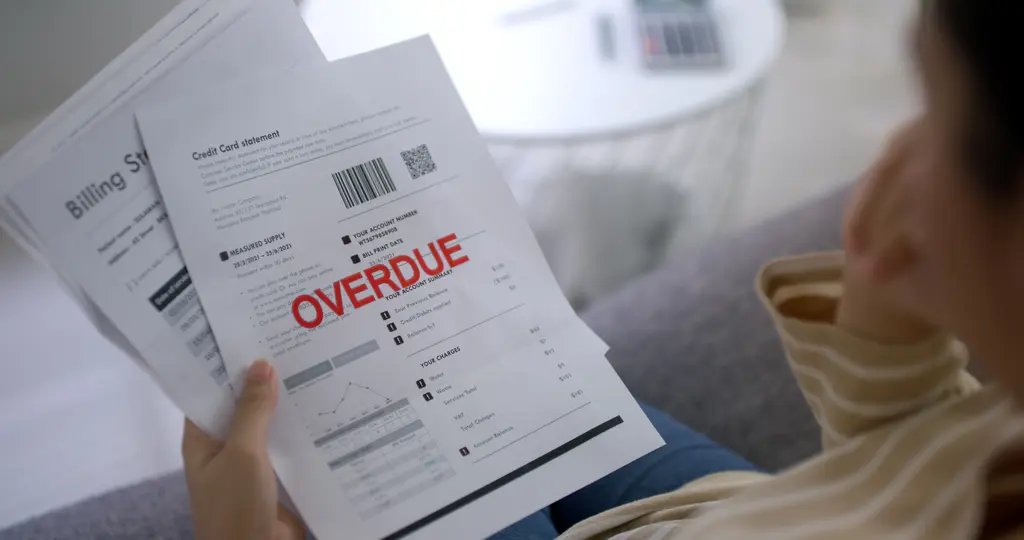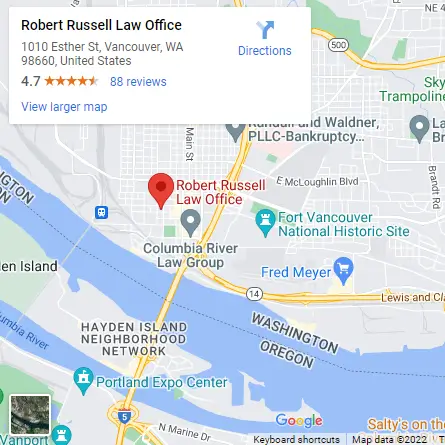Retired With Debt: Do I Need To File Bankruptcy?
In most cases, when a person retires, their retirement income is less than their prior working income. Unfortunately, existing creditors still want to be paid on time and in full; they don’t care that you have less income. With decreased income, making the same payments on debt can be a problem. Further, “life happens” and there can be any number of other reasons why a person retired or nearing retirement might want to consider bankruptcy.
Creditor Collection Efforts On Past-Due Bills
If you cannot make payments as agreed, the creditor will normally annoy you will collection letters and calls. At some point, they may likely send your account to a third party collection agency who will try to collect on the debt. The debt collector will further annoy you with various collection threats (some legal, some not). All the collection activity to this point can be stressful and annoying, but that is all it is – annoying/stressful threats, i.e., just words with little action other than the resulting annoyance and stress.
Lawsuit And Resulting Judgment For The Debt
At some point, the creditor or the collection agency can file a lawsuit and seek a judgment on the debt. A judgment is the official court document that confirms you owe on a debt. A judgment will allow the creditor to attempt to garnish income and bank accounts. It will also allow them to attempt to file a lien on any real property owned.
Collection Issues For the Retired or Nearly Retired Person
A person that is retired or nearing retirement has a particular set of factors to consider in determining the best way to handle their debt. I will address those issues one at a time.
Retirement Income is Exempt
Typically, when a person retires, their income includes Social Security and, possibly, retirement income such as a pension and/or 401K/IRA distributions. As a general rule, most retirement income is “exempt” from the claims of creditors. “Exempt” means that a judgment creditor cannot forcibly take this income from you by garnishment. If they serve a writ of garnishment on your bank account and it holds Social Security, they cannot take the Social Security. 11 USC 522(d)(10)(A), 42 USC 407. If the account holds pension income, they cannot take it. 11 USC 522(d)(12); RCW 6.15.020.
In short, Social Security and pension/retirement type income noted above is “exempt” from the claims of creditors. Generally, they only way a creditor is going to get any of this money from you is if you voluntarily give it to them or allow them to have it.
Wage Income – Garnishment
Many retirees have part-time jobs to supplement their income. This income might be available to garnishing creditors. Here is how that works.
Paycheck Due: If you have not yet been paid, the employer still owes you your paycheck, and the creditor serves a writ of garnishment on the employer, you get to keep/protect $1,100 each month. The creditor can take anything over that amount but no more than a total of 25% of your take home pay. RCW 6.27.150. Here are two easy examples: (1) If you take home / net only $1,000 a month, then the creditor cannot take anything from your paychecks. (2) If you take home / net $1,600 a month, then the creditor can take a max of 25% which equals $400 in this example; the other $1,200 (75%) is yours to keep. [Here is a link to an article that gives examples of income and how much can be garnished.]
Paycheck Received: If you have already been paid, the check is in the bank and the creditor serves a writ of garnishment on the bank, then you will lose that money to the garnishing creditor. Wages lose their “exempt” status once they are deposited into the bank. [Note: You might be able to keep up to $500 of the deposited wages. RCW 6.15.010]
Here is a tip – Spend the wage income first. If you are “retired” but still have a paying part-time job, you might consider keeping your wage income and “retirement” income in separate accounts. THEN spend the money in the wage account first. Spend all of it before you spend any of your “exempt” Social Security or retirement income. If there is no money in the wage account, the creditor gets zero from an effort to garnish that account. If they try to garnish the account that holds the Social Security and retirement income, then they get none of that exempt income. This way you “protect” your wage income by spending it first.
Your Home And Real Property
In Washington, retirees and non-retirees alike can claim a “homestead” exemption in a home that is either their current residence or a home they later intend to use as their residence. A “homestead” exemption allows the owner to protect the first $125,000 of equity in a home from the collection efforts of a judgment creditor. RCW 6.13.030. In short, this means that a judgment creditor cannot force a sale of the home unless there is far more than the $125K equity in the home. (Other protective restrictions also apply.) For example, if a home is worth $300K and there is no debt owed against it, then there is $300K of equity in the home, and a judgment creditor might be able to force a sale of the home to have the judgment paid. In that case, the home could be sold, the homeowner gets the first $125K for the homestead exemption amount, the creditor gets its judgment paid, and any left over money gets returned to the homeowner. This is an unusual occurrence.
Most of the time, a homeowner does not have more than $125K in equity in the home. In that case, a judgment creditor cannot sell the home. However, the creditor can record their judgment as a lien against the home. If the homeowner later tries to sell or refinance the home, then the creditor can get paid from the equity in the home, including the first $125K. In short, if the homeowner chooses to sell/refinance, then the judgment creditor gets paid because of its lien on the home. [Note: Bankruptcy can be quite useful in this scenario to remove the lien and discharge the debt.]
Your Car and Other Personal Property
Retirees and non-retirees alike also get to protect equity in cars, household goods and other personal property. (See, RCW 6.15.010). Frankly, it is very rare in my experience for a judgment creditor to attempt to collect from the sale of such things. The basic reason for this is that most people do not have more stuff than they can exempt and keep. Also, if a person did have a whole bunch of valuable personal property, a judgment creditor might not even know about it. So, it is rare for people to lose much personal property to a judgment creditor.
A Retiree as “Judgment Proof”
If something is “fire proof”, then it cannot be hurt by fire. Similarly, a person is “judgment proof” if a judgment cannot hurt them. For example, a retiree with Social Security income and normal valued assets (car, home, furniture, etc.) cannot have any of their income or assets forcibly taken from them by a garnishment creditor; they are “judgment proof”. Many retirees are “judgment proof” and, simply, have nothing to lose to a judgment creditor.
To File Or Not To File Bankruptcy, That Is The Question
I have many clients that are judgment proof and/or have very little to lose to an aggressive judgment creditor. They include the retired, disabled, students, unemployed and others. Many of them, however, still chose to file bankruptcy (Chapter 7). They might do this for a few reasons:
- Sanity/Stress Relief. Sometimes the collection efforts are so stressful. Filing bankruptcy discharges most debts and ends the collections efforts – letters, calls, lawsuits, garnishments, etc. [What debts are not discharged? Click Here.]
- Returning to Work. Many are returning to work and do not expect to be judgment proof for long. So, many file to prevent garnishment and collection efforts that may negatively impact their new job.
- Estate Planning. When a person dies, their creditors can get paid from their assets before family members might receive the assets. Filing bankruptcy can remove the claims of the existing creditors from receiving payment ahead of family and friends.
Free Initial Consultation – Option Review
If you have assets that need protection or if you just want the collection efforts to stop, then you might want to consider your options including a possible bankruptcy. As you know, we offer a free initial consultation. Just connect with us and we’ll be happy to help you sort through your options.






